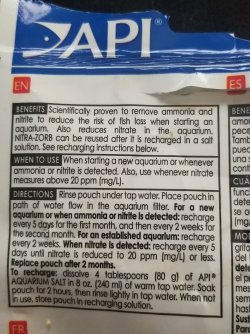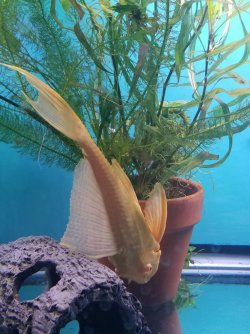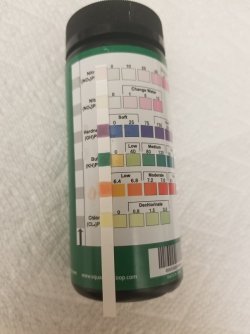I read their study and what a piece of fish poop it was. They did a fish in cycle with their tests. They reported the test readings but said not one word about the condition of the fish. Next they did the tests at a pH of 7.0. If your tank is 8.0 the ammonia becomes more toxic. And then there is this in the discussion section:
The results also prove that using NITRA-ZORB will not prevent the development of the biological filter, though it may cause it to either grow more slowly or to form a smaller colony, as evidenced by the slight rise in ammonia after the NITRA-ZORB was removed from the test aquariums.
If you want to cycle a tank, please do not do it with fish, especially if you have no clue about the chemistry and microbiology involved. At the end of a fisless cycle one can fully stock a tank and not ever see any ammonia or nitrite.
I would not use that product for anything, there is no need for it as far as I can tell. Well there is one reason API wants you to use it, API makes money from your doing so.
Also, what exactly was the fish load in their test? They say: "All aquariums had 1 6g of fish which were fed 30mg of food twice a day." What the heck does that mean

What sort of food? Was it all eaten/ if not, did they vacuum out the leftovers?
Also, an RO/DI unit will remove nitrates from water. It removes ions. But it removes a lot more than nitrate. The RO membranes can remove between 85% and 98% of any nitrate and a DI module would catch anyt nitrate the RO did not. But a DI unit on its own will also remove nitrate but it remove a lot of what an RO membrane does. DI resins cannot be recharged unless they are exchanging the nitrate for something else like chloride or salt. Better chloride than salt, but only up to a given ppm level, after that it can harm or kill fish.
Nitrates will show up as part of TDS. So if you run water through and RO/DI unit your output TDS should be 0. So it is easy to tell when the RO/membrane and/or the DI module need to be changed.




 What sort of food? Was it all eaten/ if not, did they vacuum out the leftovers?
What sort of food? Was it all eaten/ if not, did they vacuum out the leftovers?
